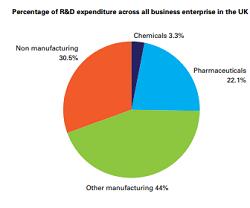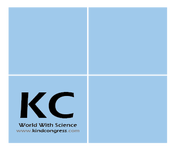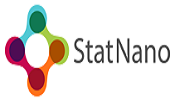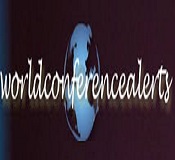Conference Series LLC Ltd take great pleasure in welcoming academic scientists, researchers, research scholars, students and experts of application fields to Vancouver, Canada for the OrganicChem 2019 Conference during July 26-27, 2019 to foster the progress in the field by contributing with your expertise to what promises to be a very comprehensive and exciting meeting and to enjoy the immense unique artistic heritage and wonderful landscape of Vancouver.
Details of Organic Chemistry Conference 2019 in Canada:
OrganicChem 2019 is a global platform to discuss and learn about new compounds and its structure, bonding, reactivity in field of organic chemistry and organometallic chemistry, organic geochemistry, biogeochemistry, marine geochemistry, petroleum geochemistry, Bioorganic and medicinal chemistry. Advancement in fields of modern experimental organic chemistry, modern analytical organic chemistry, modern theoretical organic chemistry, combinatorial Chemistry, flow chemistry, green chemistry, microwave chemistry, microwave spectroscopy, new synthetic methods and advances in catalysis.
In the light of this theme, the Conference Series LLC Ltd aims to provide a forum for international researchers from various areas of chemistry, pharmacy, materials science and chemical engineering by providing a platform for critical analysis of new data, and to share latest cutting-edge research findings and results about all aspects of Organic Chemistry. The meeting will be a multidisciplinary gathering and present major areas such as organometallic, medicinal chemistry, polymer chemistry and overall applications.
Conference Series LLC Ltd organizes 1000+ Conferences Every Year across USA, Europe & Asia with support from 1000 more scientific societies and Publishes 700+ Open access journals which contain over 30000 eminent personalities, reputed scientists as editorial board members.
Target Audience
-
Organic Chemists
-
Inorganic Chemists
-
Professors in Chemistry
-
Associated and Assistant Professors in Organic Chemistry
-
Post-doctoral and Researchers in Chemistry
-
Heads of Chemical Departments
-
Post Graduates and Graduates in Medicinal Chemistry
-
Laboratory Chemists
-
Chemical Scientists working on Materials
-
Experts in the development of Organometallic Chemistry
Why to attend OrganicChem 2019??
The aim of the Organic Chem 2019 is to promote quality research and real-world impact in an atmosphere of true international cooperation between scientists and engineers by bringing together again the world class researchers, International Communities and Industrial heads to discuss the latest developments and innovations in the fields of Chemistry.
We sincerely hope that Organic Chem 2018 serves as an international platform for meeting researchers from around the world, widen professional contact and create new opportunities, including establishing new collaborations.
We are looking forward to seeing you at OrganicChem 2018 in Vancouver, Canada.
Conference highlights
-
Fundamental Concept of Organic Chemistry
-
Bioorganic and Biochemistry
-
Stereochemistry of Organic Compounds
-
Computational Chemistry and Cheminformatics
-
Phytochemistry and Pharmacognosy
-
Green Chemistry and Sustainable Technology
-
Polymers and Monomers
-
Bio-chemistry and agricultural chemistry
-
Analytical Chemistry
-
Advanced Synthesis and Catalysis
-
Physical Organic Chemistry
-
Natural Products and Heterocyclic Chemistry
-
Flow Chemistry
-
Medicinal Chemistry, Drug Synthesis
-
Inorganic and Bioinorganic Catalysis
-
Inorganic Materials and Nanoparticles
-
Organometallic Chemistry
-
Industrial Inorganic Chemistry
-
Organic Photochemistry
-
Forensic Chemistry
-
Modern Organic Chemistry and Applications
The global chemical industry has grown by 7 percent annually, reaching €2.4 trillion in 2010. Most of the growth in the past 25 years has been driven by Asia, which now owns almost half of global chemical sales. The global chemical markets are expected to grow an average 3 percent in the next 20years. Asian players are positioned to own two-thirds of the market by 2030.
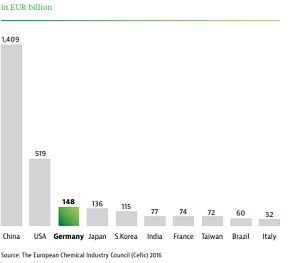
Organic chemical industry is anticipated to hold 51% of the total chemical industry market globally by 2030. With Asia Pacific, Europe, North America and Latin America being the leading markets for organic chemicals, the industry has witnessed approx. 10% growth in the last 5 years. Expanding industry applications, investment favouring industry policies are driving organic chemicals market till 2019.Extensive primary research is being conducted among leading companies such as BASF, Dow Chemicals, SABIC, Sinopec, and DuPont Chemicals and key opinion leaders from organic chemical industry.
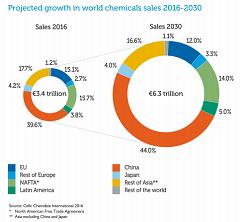
Global Organic Acids Market was valued at $16,837 million in 2016, and is expected to reach $29,197 million by 2023, registering a CAGR of 8.3% from 2017 to 2023. Organic acids are weak acids that do not completely dissociate in water when compared to mineral acids.
Key players such as BASF SE, Cargill, Inc., The Dow Chemical Company, Eastman Chemical Company, Myriant Corporation, Celanese Corporation, Archer Daniels Midland Company, Henan Jindan Lactic Acid Technology Co. Ltd., Tate & Lyle Plc., and E. I. Du Pont De Nemours and Company have largely invested in R&D activities to develop advanced products to cater to the requirements of the consumers.
United States Chemical industry:
The chemical industry is one of the largest and most important industries worldwide. The United States is the largest national producer of chemical products globally. Including the pharmaceutical sector, its chemical output value was more than 767 billion U.S. dollars in 2016.
2018 ranking of leading United States chemical companies based on revenue (in billion U.S. dollars)
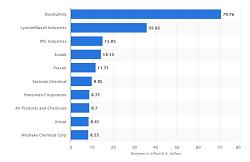
Projection of annual production growth in the United States chemical industry from 2018 to 2023
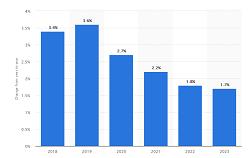
Canada Chemical Industry:
Canada’s chemistry industry is a world leader in low-intensity carbon chemical production for many reasons. Perhaps the biggest natural advantage the chemistry sector enjoys is access to abundant low-carbon fossil fuel feedstock. Natural gas is comprised of about 92% methane (CH4) and is used for heating fuel, electricity generation, and even as transportation fuel for vehicles with modified engines. Methane can also be a feedstock for some petrochemical manufacturing. Remaining components of natural gas are called natural gas liquids (NGLs) include ethane, propane, butane and pentanes. These are used as building blocks for plastics and solvents, polypropylene, refrigerants, rubbers and more.
A 2018 study from the Joint Research Centre of the European Commission compared different chemistry production processes and technological options to increase GHG efficiency and found that ethylene production that uses higher-carbon naphtha as a feedstock has an 82% higher GHG emissions factor than ethylene produced from lower-carbon ethane feedstock. Over the years, Canada’s chemistry sector has converted its ethylene facilities from naphtha to ethane feedstock and are already benefiting from this lower carbon approach to production.
Canada also has an abundant supply of low emissions hydroelectricity and huge potential for developing biomass resources to be used as feedstock and energy sources in chemistry production processes. With large portions of provincial energy grids already carbon-free, chlorine-related chemistries have a near-zero GHG footprint. In other countries, notably in Europe, Asia and the Middle East, high-carbon electricity grids result in higher GHG emissions associated with their chlorine production when compared to Canada.
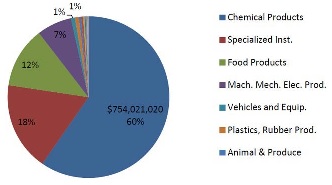
United Kingdom Chemical Industry:
The UK industry is active in all key areas: basic inorganics, petrochemicals, polymers, agrochemicals, paints, detergents and personal care products, in specialties such as adhesives, flavours and fragrances, and in a host of industrial specialties including lubricants, fuel additives, construction chemicals and catalysts. It is also a global leader in pharmaceuticals. With £48.7 billion of revenues and £17.8 billion value added in 2016, chemicals & pharmaceuticals is the UK’s second largest industry. The current UK government has committed around £4.7bn to support R&D and innovation. This commitment should be seen against the broader ambition to boost R&D spending to 2.4% of GDP by 2027.
